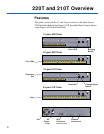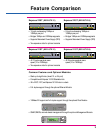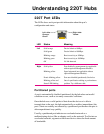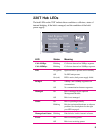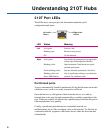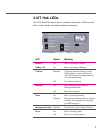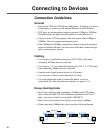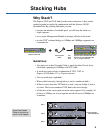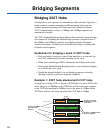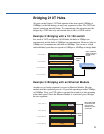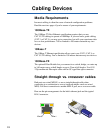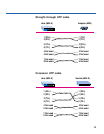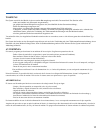
10
Bridging Segments
Bridging 220T Hubs
A bridge allows two segments to communicate with each other. Typically, a
bridge connects segments operating at different speeds, but it can also
connect segments operating at the same speed. By default, the Express
220T’s internal bridge is active so 10Mbps and 100Mbps segments are
automatically bridged.
The 220T’s Enable/Disable bridging button allows the hub’s internal bridge
to be turned off. Disabling the internal bridge prevents a loopback error if
the 10Mbps and 100Mbps segments are bridged externally (through a
switch for example). Another reason to disable the bridge is to keep traffic
isolated on each segment.
Guidelines for bridging a stack of 220T hubs
• Only one bridge is active at a time. If that hub fails or is removed, the
next 220T automatically provides bridging for the stack.
• When active, the Bridged LED is illuminated on all hubs in the stack.
• Pressing the Enable/Disable Bridging button on any hub turns bridging
on or off for the entire stack.
• Disable the internal bridge if you are bridging segments externally
(through a switch) to prevent a loopback condition.
Example 1: 220T hubs stacked with 210T hubs
A quick way to bridge 210Ts or Express 10/100 hubs is to add a 220T to the
stack. The ports at 100Mbps on the 220T hubs will be in the same segment
as the 210T hub operating at 100Mbps; just as the ports at 10Mbps on the
220T hubs will be in the same segment as the 210T hub at 10Mbps.
10Mbps 100Mpbs
10Mbps 100Mpbs
100Mbps
Bridge
10Mbps
220T (Hub 1)
210T (Hub 2)
220T (Hub 3)
210T (Hub 4)
All ports at 100Mbps share
the same segment
All ports at 10Mbps
share the same
segment
This 220T provides
bridging for all hubs
in the stack.



